|

|
|
|
|
 |
THE MILLSTONE:
British Naval Policy in the Mediterranean,
1900-1914, the Commitment to France and
British Intervention in the War
© Geoffrey Miller |
|
|
 |
|
The
Millstone
British
Naval Policy in the Mediterranean, 1900-1914, the Commitment to France and
British Intervention in the War |
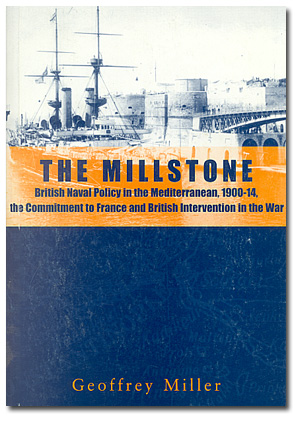 |
|
Home Page
|
|
This
site contains the entire text of
“THE MILLSTONE”
|
|
|

Admiral Sir John
Arbuthnot Fisher |
The
Millstone
British
Naval Policy in the Mediterranean, 1900-1914, the Commitment to France and
British Intervention in the War
The third volume of the Straits Trilogy
- Volume I: Superior Force : the
conspiracy behind the escape of Goeben
and Breslau
- Volume II: Straits : British Policy
towards the Ottoman Empire and the
Origins of the Dardanelles Campaign
- Volume III: The Millstone : British
Naval Policy in the Mediterranean,
1900-1914, the Commitment to France and
British Intervention in the War
These books provide a comprehensive
account of British naval and diplomatic
policy in the two decades prior to the Great
War, focusing in particular on the escape of
the German ships Goeben and Breslau
[Superior Force], the origins of the
Dardanelles Campaign [Straits], and the
political and diplomatic imperatives behind
the British decision to enter the war in
August 1914 [The Millstone].
Due to the limited number of copies of
"The Millstone" remaining in print, I have
designed this website to provide those who
may be interested with the entire text of
the book. Please note however that all
rights are reserved and that no part of this
publication may be further reproduced by any
means without the prior permission of the
author, Geoffrey Miller, who has asserted
his right in accordance with sections 77 and
78 of the Copyright, Designs and Patents
Act, 1988 to be identified as the author of
this work.
Please note
that the printed version of "The Millstone" is now out-of-print;
however, an
e-book version is available for £14.95.
|
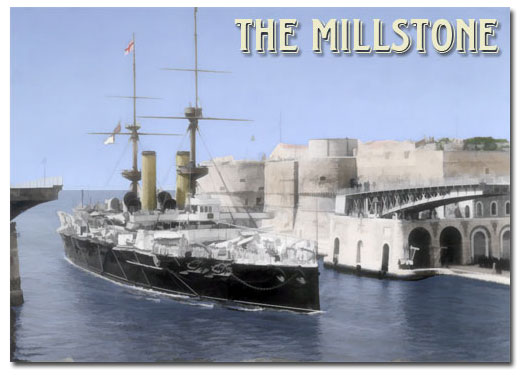
|
…I don’t like the
Mediterranean! However, there’s no mistake about it
that the Mediterranean is the tip-top appointment of
the Service, and, of course, if there’s war, there’s
a peerage or Westminster Abbey. But it’s pretty sure
to be Westminster Abbey.
Admiral Sir John Fisher
23 March 1899 |
|
The Mediterranean
is of necessity the vital point of a naval war, and
you can no more change this than you can change the
position of Mount Vesuvius, because geographical
conditions, Sebastopol and Toulon, and the Eastern
question, will compel the Battle of Armageddon to be
fought in the Mediterranean.
Admiral Sir John Fisher
1 December 1900 |
|
As to the policy
of reducing the Mediterranean Fleet, the matter is
most simple. The margin of power in the North Sea is
irreducible and requires this addition of the
Mediterranean battleships … We cannot have
everything or be strong everywhere. It is futile to
be strong in the subsidiary theatre of war and not
overwhelmingly supreme in the decisive theatre. The
moral effect of an omnipresent fleet is very great,
but it cannot be weighed – at least in the Cabinets
of the Powers – against a main fleet known to be
ready to strike and able to strike hard.
Admiral Sir John Fisher
24 June 1912 |
|
THE MILLSTONE
British Naval Policy in the Mediterranean,
1900-1914, the Commitment to France and
British Intervention in the War
SYNOPSIS
At half past two on the afternoon of Sunday,
2 August 1914, Sir Edward Grey, the Foreign
Secretary, informed the French Ambassador of
the decision just reached by the British
Cabinet — despite not yet being at war with
Germany, if, nevertheless, the German High
Seas Fleet ventured out from its base, the
British fleet ‘would intervene … in such a
way that from that moment Great Britain and
Germany would be in a state of war.’ What
led to the giving of this pledge? Was there
an obligation on Britain’s part, or merely a
commitment, moral or otherwise, to intervene
in certain circumstances? The Foreign
Secretary subsequently declared in his own
defence that the promise to the French ‘did
not pledge us to war.’ Grey was, however,
wrong — once the promise was made, British
entry into the war was certain. Despite
this, a group within the Cabinet spent the
afternoon of Sunday 2 August desperately
searching for an issue around which they
could group, and which would provide a more
convenient excuse for British entry into the
war than one based upon a moral commitment
to France; that excuse was to be Belgian
neutrality.
Two things virtually guaranteed British
entry in the war: the secret Anglo-French
military and naval talks, which commenced in
1906, and the naval position in the
Mediterranean. With Austria and Italy both
constructing dreadnoughts, and facing the
German naval challenge, British command of
the Mediterranean could no longer be
guaranteed. Similarly over-extended, the
French were unable to protect both their
Atlantic and Mediterranean coastlines. From
strategic necessity came political
expediency. The Millstone will show:
|
- That Grey was more aware of what was
settled by the secret military
conversations than he pretended to be.
- That the situation created by the
German naval programme gave Britain no
option other than to evacuate the
Mediterranean.
- That Anglo-French naval
co-ordination and strategic planning
remained chaotic.
- That the Cabinet could not have
prevented Britain’s entry into the war;
all they could have done was to prevent
the formation of a coalition Government.
- That the pledge to France and
consideration of British interests were
the sole determinants of Britain’s
entry.
- That the German promise in August
1914 not to attack the French coast was
irrelevant.
- That, far from informing the German
Government of the pledge given to Cambon
as he claimed, Grey was determined to
conceal this fact until Monday, 3
August.
- That the issue of Belgian neutrality
was used in August 1914 to assuage
consciences and prevent the formation of
a coalition Government, but was not
crucial to the decision to intervene.
- That the Continental policy,
committing British troops to fight in
Europe, was decided upon in August 1911
by a small inner circle of the Cabinet
who knew precisely what it would entail.
 |
|
Chapter
|
Table of Contents
|
|
|
|
|
1
|
Changing
fortunes
|
|
|
Britain’s
strategical interest in the Mediterranean following the opening of the
Suez Canal — the French threat — the propagation of naval scares —
naval expenditure is increased — the Naval Defence Act of 1889 — the
Mediterranean debates of the 1890s — the dissipation of the French
threat — Fisher as C-in-C, Mediterranean — the necessity for economy
— Fisher is appointed First Sea Lord.
|
|
|
|
|
2
|
The
Fisher Factor
|
|
|
The
perils of taking Fisher at face value — his inconsistency — Fisher’s
remit — the elimination of the French and Russian threats — French
policy in Morocco — Fisher’s preference for Alexandria — the
constant redistribution of the British Fleet — the Anglo-French Entente
— the first Moroccan crisis — Russia’s defeat — the naval centre
of gravity moves north — the inception of the battle cruiser — new
methods of fire control.
|
|
|
|
|
3
|
Bigger
Guns and Greater Speed
|
|
|
The
example of the Russo-Japanese War — the importance of long-range gunnery
— the threat posed by the torpedo — real or imagined? — the tactical
advantage of speed — finding a suitable rôle for the battle cruiser —
the German response to the new class — renewed calls for economy — the
Mediterranean fleet is halved.
|
|
|
|
|
4
|
Foreign
Entanglements
|
|
|
The
threat from Germany — the Committee of Imperial Defence — its objects
— Admiralty hegemony — the formulation of War Plans to assist the
French — the Navy’s plan is found wanting — a change of Government
— an innocent discussion group — a fortuitous meeting while riding —
the military correspondent of The Times — the Army view prevails — an
interview with the French Ambassador — the ‘great question’ — Sir
Edward Grey authorizes Anglo-French Staff Talks — Cabinet debate is
denied — who knew what and when? — the influence of the
Under-Secretary — a sanguine appraisal — Fisher rejects the military
strategy — the moral force created by the Entente —a bribe for
Germany? — the heckling of the French Senator — the awkward question.
|
|
|
|
|
5
|
Plans
of War
|
|
|
Fisher
attempts to quell his critics — the subsequent naval War Plans —
Beresford finds fault — the War Plans controversy continues — the
clamour for a Naval War Staff — the threat of war in 1908 — the
Invasion Sub-Committee — Fisher’s unexpected reaction — the
Tweedmouth letter — the international situation — Anglo-French naval
talks — the “three conventions” — the French reaction — the
entrenchment of the Continental Strategy — the great naval scare of 1909
and its aftermath.
|
|
|
|
|
6
|
A
New Enemy
|
|
|
The
Mediterranean naval race and its implications — French reactions — the
great Fisher-Beresford feud — an Asquithian compromise — agitation for
a Naval War Staff increases — Fisher’s tenure ends — Admiral Wilson
is appointed First Sea Lord — his faults — the Anglo-Russian entente
— Empire or encirclement? — the Straits question — a difficult year
in the life of the Liberal Government — the resumption of Anglo-German
naval conversations.
|
|
|
|
|
7
|
Agadir
|
|
|
The
origins of the crisis — the British position in the Mediterranean —
Churchill enters the debate — Admiral Wilson is unconcerned — the
conciliatory approach of Grey — the subsequent flare-up — Lloyd George
speaks his mind — were British interests affected? — the German
Ambassador’s fury — tension eases — the Continental commitment
outlined — Haldane’s secret initiative — the C. I. D. pronounces on
strategy — Admiral Wilson’s lamentable performance — the inept naval
alternative.
|
|
|
|
|
8
|
The
Right of Free Choice
|
|
|
Asquith
determines on changes at the Admiralty — Haldane’s longing for the
position — a second suitor — the ramifications of Admiral Wilson’s
performance — Anglo-French naval talks are re-activated — increasing
French confidence — the French centre of gravity moves south — the
mania for secrecy — Asquith’s concern— the militarization of the
“Terrible Twins” — policy is dictated by considerations of strategy
— fear of French military weakness and the position of Belgium —
Churchill stakes his claim for the Admiralty — the influence of Henry
Wilson — the Radicals fight back — all change at the Admiralty — a
confrontation in the Cabinet.
|
|
|
|
|
9
|
Churchill
Arrives
|
|
|
The
revivification of Fisher — the formation of a Naval War Staff — its
defects — Churchill determines on a new First Sea Lord — the Turco-Italian
War — Fisher and Alexandria once more — Churchill’s renewed interest
in the Mediterranean naval situation — a French rebuff —
Battenberg’s unease — the finalization of the Naval War Staff — the
German novelle — Churchill’s attempt to bypass the Committee of
Imperial Defence — the plan to withdraw the Mediterranean battleships.
|
|
|
|
|
10
|
“We
cannot have everything or be strong everywhere”
|
|
|
The
Haldane mission — proposals and counter-proposals — Churchill’s
unhelpful intervention — the Anglo-German talks fail — French
suspicion — the Mediterranean to be evacuated — the Naval Holiday —
the proposed recasting of the fleet — the Foreign Office becomes
involved — Sir Arthur Nicolson is let in on a secret — an alliance
with France? — the War Office reaction.
|
|
|
|
|
11
|
The
Malta Compromise
|
|
|
A
small victory for the Cabinet — the summer cruise of Asquith and
Churchill — Admiral Beatty’s idea — the Malta meetings — Churchill
overcomes Kitchener — Kitchener enlists Grey’s help — Churchill
tries to overcome the Cabinet — a job for the battle cruisers —
McKenna fights back — the question of figures — who was right? —
Churchill marshals his support — Sir Arthur Nicolson’s cold feet.
|
|
|
|
|
12
|
The
Numbers Game
|
|
|
The
C.I.D. sits in judgment — a loose compromise — Esher is elated,
Churchill deflated — a trap for the Canadians — the Canadians escape
— the dispositions for the Mediterranean are set — the pliable
Admiralty — the Franco-Russian Naval Convention — Churchill’s new
initiative — the private and public stances of the Admiralty — formal
Anglo-French conversations.
|
|
|
|
|
13
|
The
Obligation
|
|
|
The
Austrian enigma — Poincaré spins a web — Churchill holds out for
freedom of action — the problem of finding a successor to Admiral
Troubridge — the French move their battleships from Brest — the
relentless French pressure — Italian machinations — complications in
the Mediterranean — the Grey-Cambon letters — the question of command
— naval reaction to the First Balkan War — Bridgeman is outmanoeuvred
— Battenberg fulfils an ambition.
|
|
|
|
|
14
|
The
Polarization of the Mediterranean
|
|
|
A
lack of resources — the Algerian Corps in French plans — the first
British battle cruiser arrives — the completion of the technical
Anglo-French arrangement — Battenberg’s cloak and dagger —
Mediterranean War Orders — Admiral Milne’s friendly advice —
Churchill’s Mediterranean diversions — the Adriatic position — the
renewal of the Triple Alliance Naval Convention — the questionable naval
co-operation of Italy and Austria-Hungary — a British naval
demonstration is required — Beatty wants his ships back —
Churchill’s estrangement from the C.I.D. — flaws in the Naval War
Staff — Italian duplicity — Grey does not rise to the bait — San
Giuliano cries “wolf”.
|
|
|
|
|
15
|
Naval
Estimates and the Question of Substitution
|
|
|
Churchill
and the policy of Dreadnought substitution — the storm over the 1914-15
Estimates — Lloyd George speaks his mind again — his estrangement from
Churchill — the Canadian dreadnoughts fail to make up the shortfall —
Churchill’s flexible Mediterranean policy — Asquith intervenes —
Lloyd George compromises — the submarine question — the future for
Dreadnoughts.
|
|
|
|
|
16
|
The
Limitations of Foreign Policy
|
|
|
Faulty
intelligence — Churchill redeems his pledge — the question of
substitution once more — a source on ready-made Dreadnoughts — the
evolution of tactics — French strength — the French attempt to cement
the bond — an initial lack of co-operation — Milne to be responsible
for Goeben — Sazonov renews his approach — Britain’s hand is forced
— preliminary Anglo-Russian talks are instigated — a diplomatic leak
— Grey is discomfited — German knowledge of the talks.
|
|
|
|
|
17
|
“Before
the unknown”
|
|
|
The
British pledge to France and its implications — the onset of the crisis
— Ulster dominates — the growing awareness — Grey’s proposal for a
Conference — localizing the conflict — the question of Belgian
neutrality — the Cabinet hedges its bets — the Continent mobilizes —
a shameless German proposal — the naval situation — Churchill
pre-empts the Cabinet — the embargo of the Turkish Dreadnoughts.
|
|
|
|
|
18
|
“Mon
petit papier”
|
|
|
Grey’s
‘painful’ interview with the French Ambassador — the position of the
permanent officials at the Foreign Office — Churchill’s intrigue —
Cambon’s allegation — Saturday’s Cabinet and Grey’s unusual
initiative — a misunderstanding — Grey’s threat to go — Lloyd
George refuses to take the Radical whip — the issue of Belgian
neutrality becomes paramount — Cambon goes on the attack — the outcome
of the embargo — Grey’s ‘fixation’ with the English Channel —
German naval operational plans — the future of the Liberal Party.
|
|
|
|
|
19
|
The
Decision for War
|
|
|
The
unprecedented Sunday Cabinet — Grey argues for a pledge to France —
the Cabinet is split — the conversion of the middle section—
Asquith’s reasoning — Grey controls the agenda — Italian neutrality
and the Mediterranean position — Grey’s pledge to Cambon — the
problem of Goeben and Breslau and the French troop transportation — the
‘excuse’ of Belgium— Samuel’s exaggerated rôle — the cynical
policy of Lloyd George.
|
|
|
|
|
20
|
“A
terrible business”
|
|
|
Cabinet
resignations — the army is neglected — an emotional scene in the
Cabinet — Grey prepares for his speech — the atmosphere in the House
— Grey rises to speak — his lengthy defence of his policy — Grey
carries the House — loud and prolonged cheers — Churchill’s
immediate reaction — the question of Cabinet unity — Goeben and
Breslau are sighted — Churchill is restrained — the moral force of the
Grey-Cambon letters — Grey’s responsibility.
|
|
|
|
|
21
|
Summary
and conclusions
|
|
|
|
|
|
Bibliography
|
|
|
|
|
|
Index
|
|
Please note that, in addition to this
site, each book has its own, dedicated,
web-site.
At all of these sites, the full text is
available on-line:
www.superiorforce.co.uk
[Superior Force complete text]
www.dardanelles.co.uk [Straits
complete text]
www.the-millstone.co.uk [The
Millstone complete text]
TO GO TO
ANY OF THESE DEDICATED WEB SITES,
PLEASE
SELECT A BOOK COVER BELOW.
|
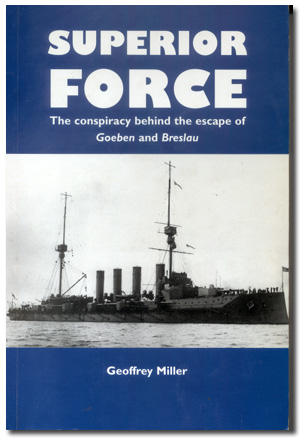 |
Superior Force
The Conspiracy Behind the Escape of Goeben
and Breslau
xxiii + 458 pages, 20 illustrations, 2 maps
Full bibliography, notes and index
Card cover, 6¼" x 9¼"
ISBN 0 85958 635 9
Published 1996
For an overview of Superior Force
(remaining within this web-site), please
click:

To go to the dedicated web-site for "Superior
Force", please click:

The full text is available on-line at
www.superiorforce.co.uk
|
 |
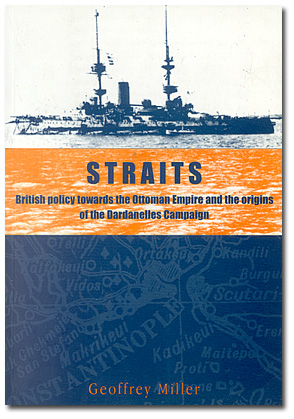 |
Straits
British Policy Towards the Ottoman Empire
and the Origins of the Dardanelles Campaign
xxvi + 604 pages, 12 illustrations, 1 map
Full bibliography, notes and index
Card cover, 5¾" x 8¼"
ISBN 0 85958 635 9
Hardcover ISBN 0 85958 663 4 [out of print]
Published 1997
For an overview of "Straits" (remaining within this web-site), please
click:

To go to the dedicated web-site for
"Straits", please click:

The full text is available on-line at
www.dardanelles.co.uk
Please note that Straits
is now out-of-print; however, a digital
version is available.
|
 |
 |
The Millstone
British Policy in the Mediterranean,
1900-1914, the Commitment to France
and
British Intervention in the War
xv + 611 pages
Full bibliography, notes and index
Laminated card cover, 5¾" x 8¼"
ISBN 0 85958 690 1
Published 1999
Please note that The
Millstone is now out-of-print; however, a
digital version is available. |
 |
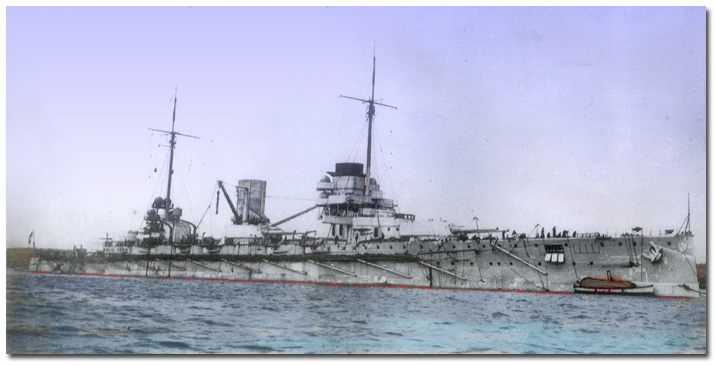
SMS Goeben
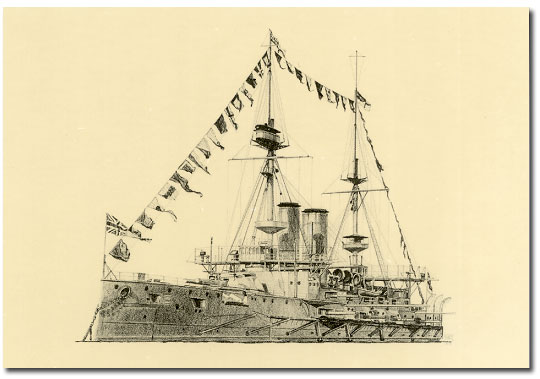 |
Ships of the Victorian & Edwardian Navy :
I have been drawing the ships of the
Victorian and Edwardian Navy for twenty
years for my personal pleasure and I am
including some of these drawings on this
site in the hope that others may find them
of interest.
The original drawings are all in pencil.
Reducing the file size and therefore the
download time has resulted in some loss of
detail.
A set of postcards
featuring eight of my drawings is now
available for £2.50, which includes postage
anywhere in the world.
For more
information please click on the drawing
below:
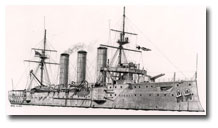
|
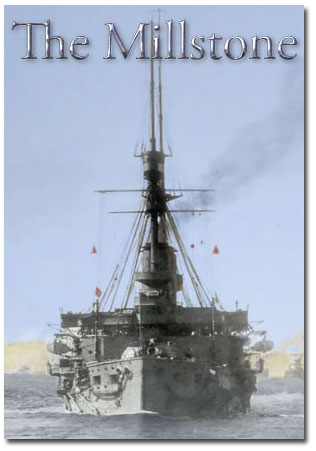 |
The Links Page :
As the range of our activities
is so diverse, we have a number of different
websites. The site you are currently viewing is
wholly devoted to the third of the three
non-fiction books written by Geoffrey Miller,
and deals specifically with the political and
diplomatic imperatives behind the British
decision to enter the war in August 1914. The
main Flamborough Manor site focuses primarily on
accommodation but has brief details of all our
other activities. To allow for more information
to be presented on these other activities, there
are other self-contained web-sites. All our
web-sites have a
LINKS
page in common, which allows for easy navigation
between the various sites. To find out where you
are, or to return to the main site, simply go to
the
LINKS
page.
|
 |
|

|
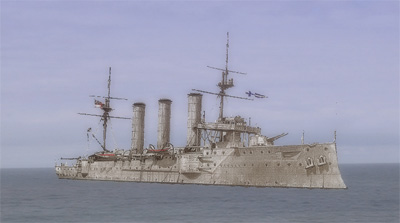
HMS Berwick
[Original artwork © 2004 Geoffrey
Miller] |
|
Geoffrey Miller
can be contacted by:
-
Telephone
or FAX
- 01262 850943 [International:
+44 1262 850943]
-
Postal address
-
The Manor House,
Flamborough,
Bridlington,
East Riding of Yorkshire, YO15 1PD
United Kingdom.
-
E-mail
-
gm@resurgambooks.co.uk
|
|
|

|
|
|
|
|
|
|